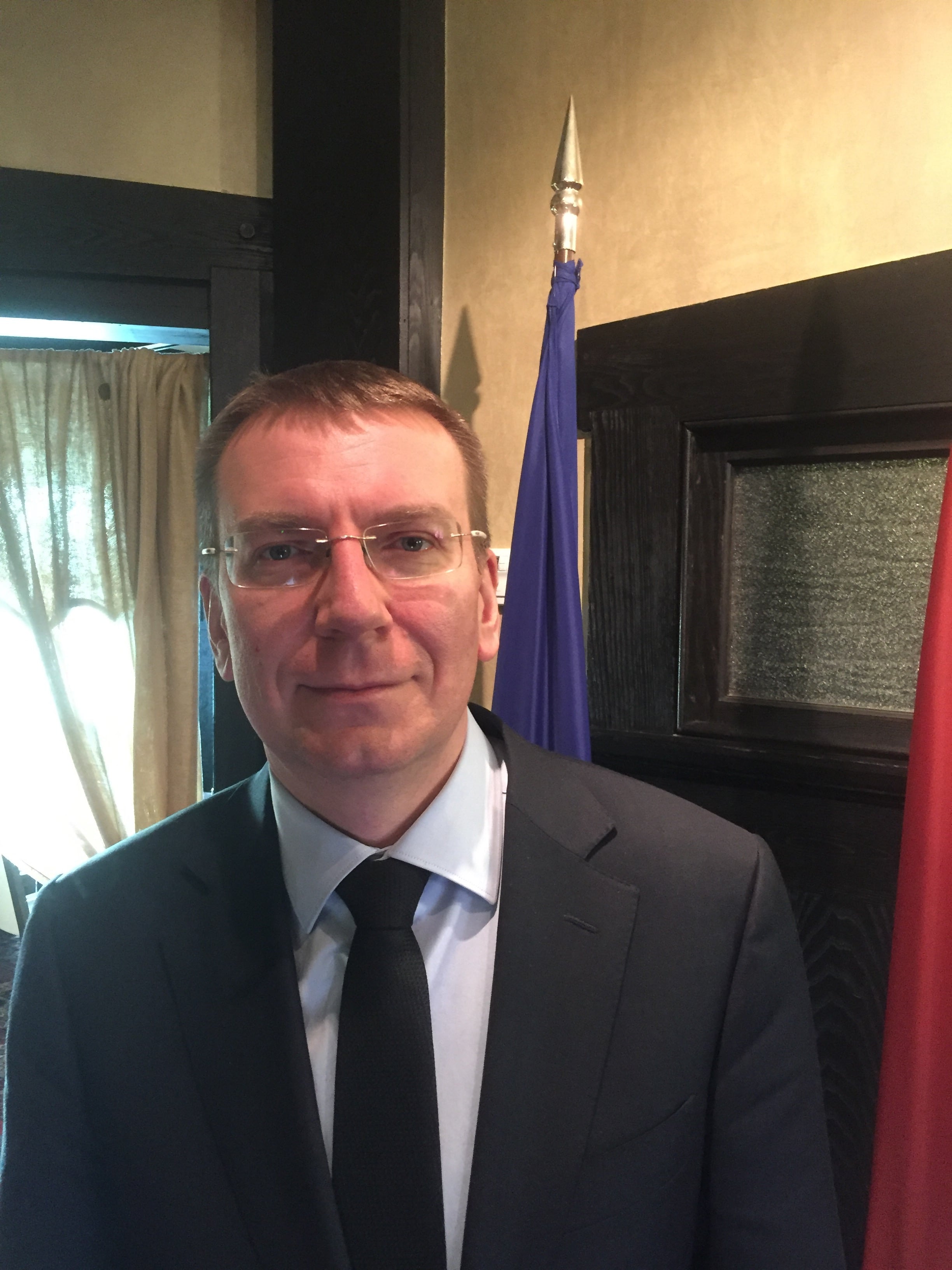WASHINGTON — Latvia wants NATO to increase its security along Europe's eastern front to counter what it sees as a growing Russian menace, the Baltic country's foreign minister said.
Alarmed by a rising tempo and intensity of Russian exercises, deployments and rhetoric just over the border, the small former Soviet republic is taking steps to harden its defenses, but NATO help is required, Edgars Rinkevics told USA TODAY on Friday during a visit to Washington.
"We have to decide on further deterrent measures on the eastern flank of NATO," he said.
To deter Russia in the region, NATO needs more "boots on the ground," increased and larger military exercises, deployment of military equipment and the strengthening of air defenses, he said.
Such steps seem unlikely, according to a report released Thursday by the Atlantic Council think tank. The report said the military preparedness of major NATO members is so deficient that some would have difficulty fielding troops in an emergency.
The United Kingdom's military has been "hollowed out to such an extent that the deployment of a brigade, let alone a division, at credible readiness would be a major challenge," the report said.
Rinkevics said NATO needs to meet the security challenge posed by Russia's annexation of Ukraine's Crimean Peninsula in April 2014.
At that time, Russian President Vladimir Putin declared a new doctrine, "the Russian world," which called for action anywhere on the planet where the interests of Russia or Russian-speaking people are in danger.
Since then, Russia has seen NATO as a strategic adversary. In response, it launched a military buildup in Kaliningrad, the Russian enclave in the mouth of the Baltic Seathat's home to Russia's Baltic fleet. Kaliningrad now houses Russia's most advanced anti-aircraft missiles and ballistic missiles capable of reaching European capitals.
Russia also has increased mobilizations near NATO's borders, Rinkevics said. These include a helicopter base a few miles from Latvia's border and offensive drills on breaking NATO defenses and occupying Baltic countries, he said.
These exercises typically culminate with the simulated use of nuclear weapons, according to a briefing provided to USA TODAY by the Potomac Foundation think tank.

Latvian Foreign Minister Edgars Rinkevics, during a visit to Washington on Feb. 25, 2016, said NATO should increase its presence in the Baltics and other eastern flank nations facing Russia.
Photo Credit: Oren Dorell, USA TODAY
Rinkevics said a lot of Russian exercises look like simulated nuclear attacks. Russian commanders evidently see nuclear weapons "not as theoretical but tactical, to prevent NATO countries from responding to fulfill their obligations under Article 5" of the NATO's founding treaty, which calls for a mutual defense of all members, he said.
"A clear message and response to that can only be that we take those issues seriously and deploy everything necessary for NATO defense," he said.
Russia's military steps have been accompanied by an onslaught of Russian propaganda aimed at creating doubts in Europe about the leadership of the European Union and its policies.
Rinkevics said Latvia sees membership in both NATO and the EU as key to its independence and security, but he said the migrant crisis, the rise of right-wing political movements in Europe, and a referendum by Britain in June on whether to leave the economic alliance has left him "worried about the state of the union."
Latvia is not waiting for NATO to harden its defenses, Rinkevics said. It has pledged to boost defense spending through 2018 and to increase the number of border guards, and it is considering building a fence along the border.
"We need to work with all NATO allies to make sure the NATO summit (this summer in Warsaw) is used to strengthen all the defenses of NATO," he said.





